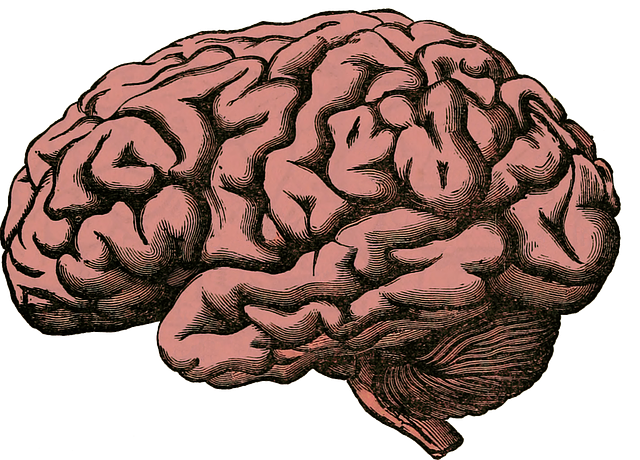Northglenn Terminal Illness Therapy emphasizes the power of positive thinking as a holistic approach to managing terminal illness. By cultivating optimism, reframing negative thoughts, and integrating gratitude practices, individuals gain emotional resilience and improve overall well-being. Their tailored programs, mental wellness coaching, and self-awareness exercises empower patients to navigate their journey with hope and dignity, enhancing coping mechanisms and promoting positive mindsets even in the face of adversity.
Positive thinking is a powerful tool that can significantly impact our overall well-being. This article explores effective strategies to integrate and maintain a positive mindset, especially for those navigating challenging circumstances. We delve into the benefits of Northglenn Terminal Illness Therapy, which offers valuable techniques to cultivate optimism. Learn how creating a routine of daily positive affirmations, practicing gratitude, and overcoming challenges can enhance your mental resilience.
- Understanding Positive Thinking and Its Impact on Well-being
- The Role of Northglenn Terminal Illness Therapy in Cultivating Optimism
- Creating a Routine for Daily Positive Affirmations
- Overcoming Challenges: Strategies for Persistent Positive Thinking
- Integrating Gratitude Practices into Your Life
Understanding Positive Thinking and Its Impact on Well-being

Positive thinking is a powerful tool that can significantly influence an individual’s overall well-being. It involves cultivating optimistic beliefs and interpretations, focusing on the positive aspects of life, and reframing negative thoughts into more constructive ones. This simple yet profound practice has been shown to reduce stress, improve mood, enhance resilience, and even promote physical health benefits. For individuals facing challenging situations, such as those with a terminal illness, adopting positive thinking can be transformative. Northglenn Terminal Illness Therapy emphasizes the importance of this mental shift, offering self-awareness exercises designed to help patients navigate their journey with grace and optimism.
By integrating positive thinking into daily routines, people can improve their coping mechanisms and overall mental wellness. This practice encourages individuals to take a proactive role in managing their thoughts and emotions, which is especially beneficial for those at risk of developing mental health issues. Mental wellness coaching programs often incorporate techniques to foster self-awareness exercises, enabling individuals to identify and challenge negative thought patterns. Moreover, understanding the impact of positive thinking can motivate people to seek support from professionals who conduct risk assessments for mental health practitioners, ensuring they receive the guidance needed to assist others effectively.
The Role of Northglenn Terminal Illness Therapy in Cultivating Optimism

Northglenn Terminal Illness Therapy plays a pivotal role in empowering individuals to cultivate optimism amidst challenging circumstances. Through tailored programs and compassionate support, this therapy centre goes beyond mere treatment; it facilitates an empowering shift towards hopefulness. The therapeutic environment, designed with emotional healing processes at its core, equips clients with coping strategies that enhance resilience.
This approach not only addresses the physical aspects of terminal illness but also prioritises risk management planning for mental health professionals, ensuring they have the tools to guide patients through turbulent emotions. By integrating emotional intelligence into their practice, Northglenn Terminal Illness Therapy facilitates meaningful connections, enabling folks to navigate their journeys with dignity and optimism.
Creating a Routine for Daily Positive Affirmations

Creating a daily routine for positive affirmations is a powerful tool for anyone seeking to enhance their mental well-being, and this practice can be especially beneficial for individuals navigating challenges related to terminal illness. At Northglenn Terminal Illness Therapy, we encourage our clients to incorporate positive thinking exercises into their daily lives. A consistent affirmation routine allows for the cultivation of inner strength and resilience, which are crucial in managing stress and difficult emotions.
Starting small is key; begin with a few minutes each morning dedicated to repeating affirmations that resonate with you. These could be simple statements like “I am strong,” “My thoughts bring me peace,” or “I embrace this day with positivity.” Over time, you can expand your routine by incorporating visual aids, such as placing inspiring quotes around your home or workspace, or engaging in Social Skills Training to enhance the effectiveness of your affirmations. By consistently reinforcing positive messages, individuals can improve their outlook and develop a stronger mindset, which is essential for managing mental health, especially during challenging times.
Overcoming Challenges: Strategies for Persistent Positive Thinking

Navigating life’s challenges with a positive mindset is an essential aspect of emotional healing processes. Even in the face of adversity, such as dealing with a terminal illness, adopting a persistent positive thinking approach can significantly impact one’s well-being. Northglenn Terminal Illness Therapy offers valuable tools and strategies to overcome these hurdles. The first step is recognizing that negative thoughts are normal during difficult times but choosing to reframe them can be transformative. This involves practicing self-talk that encourages resilience and gratitude, focusing on what can be controlled, and seeking support from loved ones or professional therapists who provide crisis intervention guidance.
By cultivating a positive mindset, individuals can enhance their emotional coping mechanisms. This doesn’t mean ignoring the reality of the situation but rather finding strength in hope and optimism. Through specific techniques taught by Northglenn Terminal Illness Therapy, one can learn to navigate crises with grace, fostering a sense of peace amidst turmoil. It empowers individuals to embrace emotional healing processes, enabling them to maintain a positive outlook even during life’s most challenging periods.
Integrating Gratitude Practices into Your Life

Incorporating gratitude practices into your daily routine can be a powerful tool for enhancing mental wellness, as supported by Northglenn Terminal Illness Therapy’s community outreach program implementation. Taking a moment each day to reflect on the things you’re grateful for—be it your loved ones, health, or even a beautiful sunset—can shift your perspective and foster a more positive mindset. This simple yet profound exercise has been shown to reduce symptoms of mental illness stigma, promoting overall well-being and resilience.
By integrating gratitude into your life, you create a mental space that encourages optimism and appreciation for the small joys around you. It’s about acknowledging and embracing the positives, which can be especially beneficial for those navigating challenging circumstances. This practice, when consistently applied, has the potential to revolutionize one’s outlook on life, contributing to a more fulfilling and meaningful existence.
Implementing positive thinking exercises, as supported by practices like Northglenn Terminal Illness Therapy, can significantly enhance well-being. By incorporating daily affirmations, gratitude practices, and strategies for overcoming challenges, individuals can cultivate optimism and navigate life’s complexities with resilience. These techniques, when integrated into a routine, offer a transformative path towards a more positive and fulfilling life.










